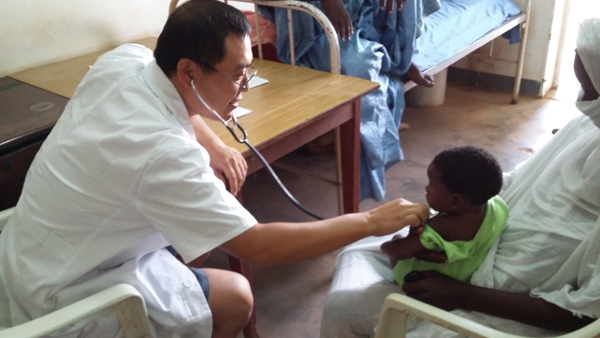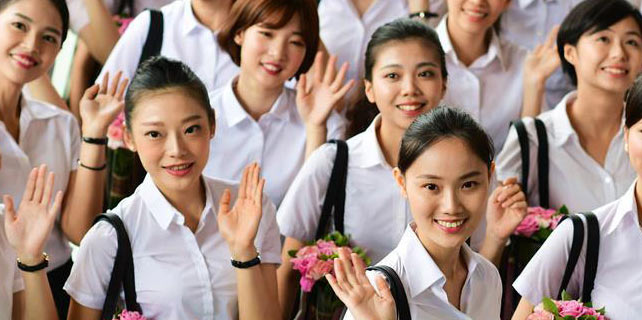Doctor heals children in desert city
 |
|
Wang Zhibing treats a Mauritanian child in a hospital in Kiffa, Mauritania. [Photo provided to China Daily] |
On Aug 4, after spending a year providing medical assistance in the Northwest African country of Mauritania, Wang Zhibing returned to his hometown of Harbin, Heilongjiang province.
"When I stepped off the plane, the cool air felt so relaxing, despite it being in the heat of summer," said Wang, who had been experiencing temperatures of 50 C in Africa.
Wang, 45, an associate chief physician of the general surgery department at Harbin Children's Hospital, received more than 1,400 patients and performed hundreds of operations at the hospital in Kiffa, a city in southern Mauritania.
The Mauritanian medical assistance program was launched by Heilongjiang in 1968. To date, more than 800 Chinese medical personnel have been sent to the country in 32 separate groups.
"The province has a long history of sending medical personnel to Mauritania, but I was the first pediatrician to be invited. When I got the news that the 32nd group would be sent in July last year, I saw participating in the mission as a unique experience," Wang said.
"My wife showed great concern for my safety, but was not opposed to the idea. I asked her not to worry about me because I was part of a team and would receive support from our hospital and our country."
However, he said he felt guilty for having left all the family responsibilities to his wife. "Fortunately, my family provided great support and are proud of me for completing the mission successfully," he said.
Before departing, Wang researched Mauritania, especially the city he was going to be posted in.
"I prepared myself for the challenges ahead, from the extreme climatic conditions to the serious epidemics. But when we landed in Kiffa, we were overwhelmed by a series of difficulties beyond our imagination," he said.
"There were mosquitoes and other insects that we had not experienced in China."
Kiffa, with a tropical desert climate, is extremely hot and dry. Adapting to the huge difference in temperature between Harbin and Kiffa was a big challenge. "Sandstorms would start suddenly, without warning."
The extreme natural environment also makes it difficult to purchase fresh fruit and vegetables.
"You can only buy onions, potatoes and cabbages in the local markets," Wang said. "Every month we had the chance to buy something else, such as peppers, tomatoes and Chinese chives, from the national capital of Nouakchott, which is 700 kilometers away."
However, after several hours' driving in extremely hot temperatures, the vegetables would shrivel and had to be eaten within a week.
The Chinese doctors are warmly welcomed by the local residents.
"In their eyes, Chinese doctors can save lives under any circumstances," said Wang, adding that almost everyone there can say "Hello, Chinese doctor" in Chinese.
Due to the high temperatures and huge number of flies, many outpatients have diarrhea, especially between April and October.
"I remember during a night shift, I received six children who had diarrhea, and one of them was in critical condition due to severe dehydration," Wang said.
















